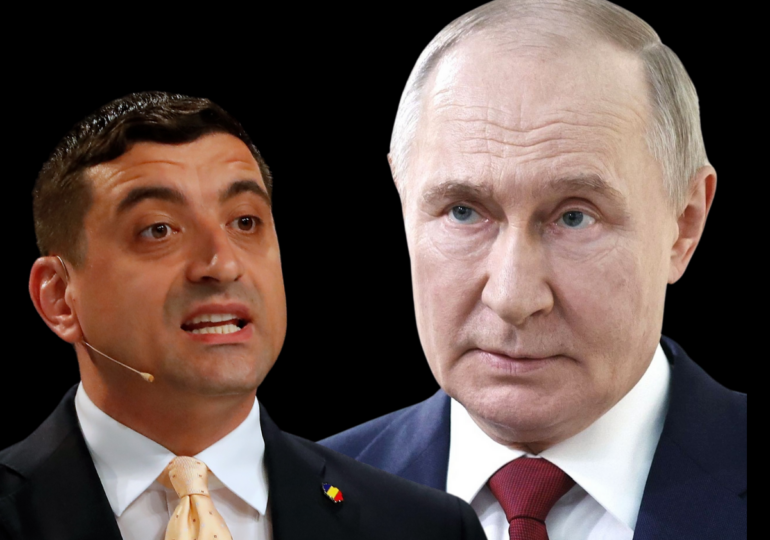On the day of the presidential final, Romanian users of the social platform Telegram received a strange message from its founder, namely Pavel Durov, who claimed, no more no less, that representatives of a Western government interfered in the electoral process in Romania.
Durov, former owner of the VKontakte network in Russia, taken over by the Kremlin, announced in a post sent to the Telegram accounts in Romania that he was asked „to silence conservative voices”.
The direct and brutal intervention of the owner of a social network, suspected of acting at the command of Vladimir Putin, in the electoral process in Romania was a new blow delivered by the Kremlin without any intention to mask its actions.
The interference was even more shocking than the acknowledgment by the Russian Foreign Intelligence Service of supporting Călin Georgescu.
Russia has always been attentive to Romania. It had influence networks here, sent investors, infiltrated agents into important institutions, managed to pressure all governments in Bucharest installed after 1990.
But Kremlin's actions always took place away from the spotlight, with individuals from the second and third lines of Romanian politics. At the top, they reached through intermediaries and offered business opportunities, Kremlin representatives being present but not scrutinized by authorities or the public eye.
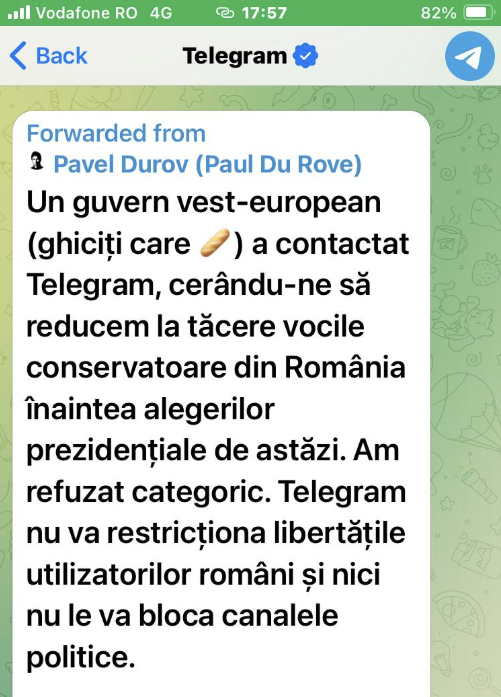
Telegram founder's message addressed directly to Romanian voters on election day - Source: Telegram
What Triggered the Fury
Russia, according to a source, a former intelligence officer I spoke with, "has always put pressure on Romania during elections. It was known what they were doing," but this time was different.
According to the corroboration of multiple data, Russia's virulent attack on Romania began on October 21, 2024.
Until then, Bucharest was viewed unfavorably by Moscow due to the support given to Kyiv, but it did not pose a threat. From that day, everything changed.
On October 21, the official results of the referendum held in the Republic of Moldova for joining the European Union are published in Chișinău. Although with a narrow margin, just over 10,000 votes, the majority of citizens in the neighboring country validate the amendment to the Constitution, making EU integration a fundamental objective.
The decision represented a strategic defeat for the Kremlin, which lost political control over Moldova.
Vladimir Putin invested huge resources in pro-Russian forces in Chișinău. He funded political formations, businessmen, influence networks, social media campaigns, terrorist groups, all with the aim of derailing the referendum for EU accession.
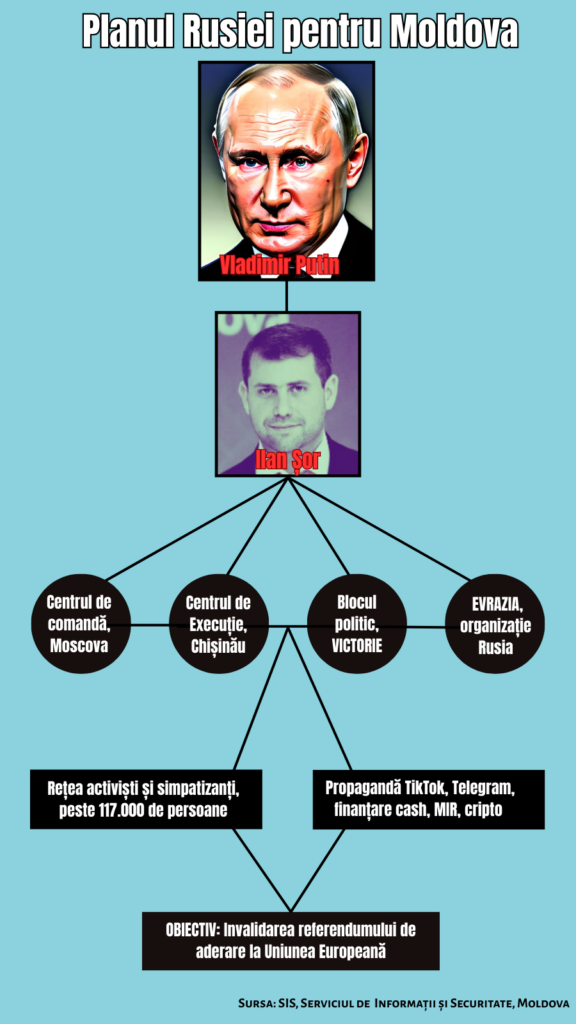
The Plan to Destroy Moldova
"Throughout 2024, the organized crime group (ȘOR) has been in a constant process of identifying the camouflaged mechanisms for introducing money sources into the country (Republic of Moldova) with the following documented ways:
- organized transport of cash from the Russian Federation to the Republic of Moldova by carriers and associated persons... This method is being investigated by the Police, Prosecutor's Office, and Customs Service;
- money transfers from the Russian Federation, operated through bank accounts at PROMSVYAZBANK, under international sanctions;
- the Russian payment system MIR, with sums transferred through payment platforms in Uzbekistan;
- P2P transfers (person to person) through payment platforms and banks in Central Asia, money transfer systems, such as Zolotaya Korona, as shown in the report by the Information and Security Service of the Republic of Moldova.
The report, entitled Electoral Frauds Detected in the Presidential Elections and the Republican Referendum, with 16 pages, was submitted to Parliament and contains all the methods used by the Kremlin to undermine Moldova's EU accession process.
Since the validation of the referendum and the victory of Maia Sandu, who secured a new presidential term in the Republic of Moldova, the Kremlin considered that the support provided by the authorities in Bucharest to Chișinău was decisive, thus initiating revenge.
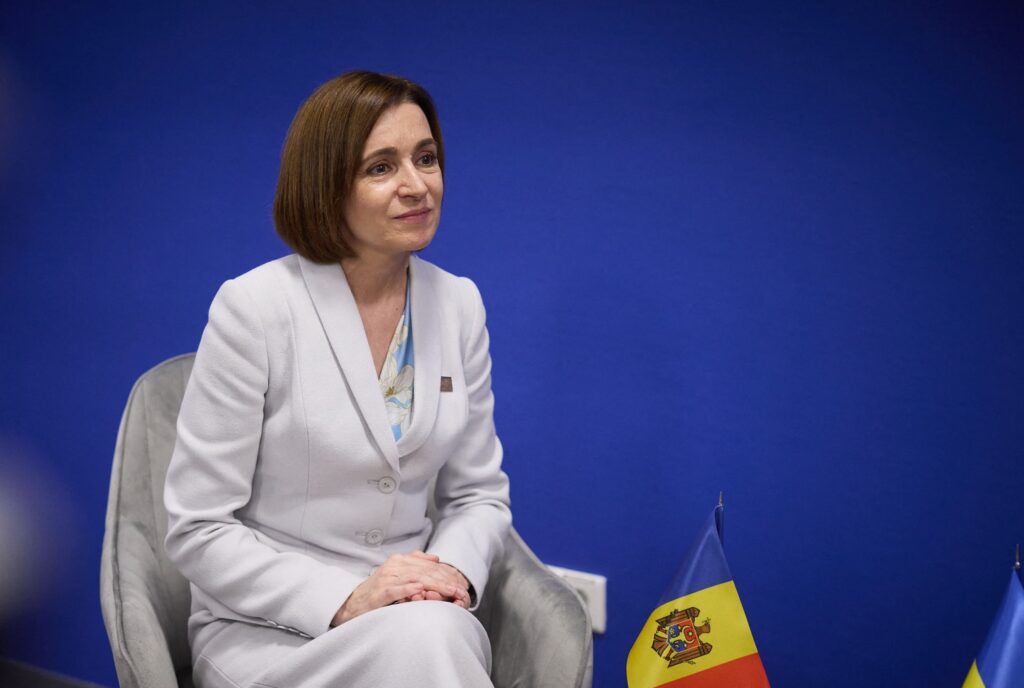
"The West resorted to the same dirty trick in the Romanian elections as in Moldova. The opposition was eliminated, the pro-European diaspora was involved, and the loser was forced to accept the rigged result. These were not elections. The real elections took place six months ago. What we saw now was a staged performance with a predetermined outcome. Obviously, this deceitful scheme will also work in the parliamentary elections in Moldova," stated the pro-Russian multimillionaire Ilan Șor shortly after Nicușor Dan's victory.
Ilan Șor is the one who transferred millions of euros from the Kremlin to influence networks in Moldova to block the EU accession process. He appears in the SIS report, where his illegal activities are described in detail. He is accused of corruption and has sought refuge in Moscow.
Moscow Wanted a Pro-Russian President in Bucharest
The Operation of Călin Georgescu and the actions of George Simion, the leader of AUR, are coordinated from the Kremlin.
"...there are clear accusations and evidence, where one of the candidates, George Simion, met, had meetings with GRU officers and even tried to divert peaceful demonstrations, electoral support marches...," stated on November 12, 2024, Senator Ioan Chirteș, the President of the SRI Control Commission at that time.
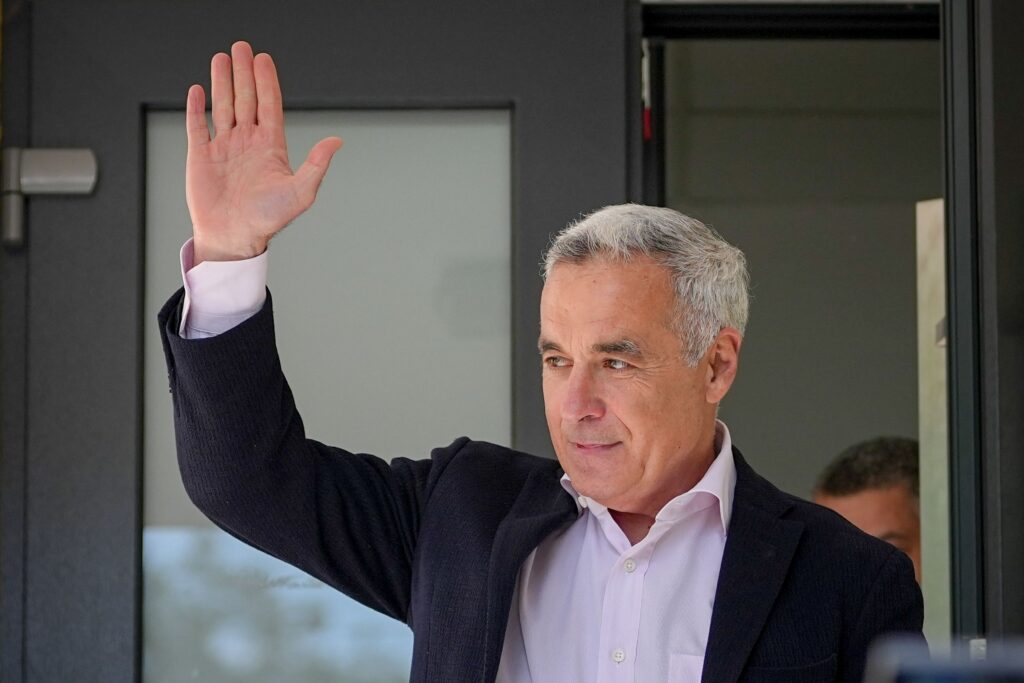
Within Romania's security institutions, it is known that George Simion is an influence agent controlled by Russia. At least Marcel Ciolacu, former Prime Minister, and Ioan Chirteș, former head of the SRI Commission, have seen parts of the two files Simion has in Ukraine and Moldova.
Moreover, it is no longer a secret that the Kremlin's main objective, after the failure in Chișinău, was to impose a pro-Russian president in Bucharest.
In this regard, hundreds of millions of euros were spent, explaining the bizarre position of the SVR, Russia's foreign intelligence service, by publicly assuming support for Călin Georgescu, and the involvement of Pavel Durov, the Telegram administrator, who until now feigned detachment from Vladimir Putin.
To disclose the objectives of a secret service publicly and to sacrifice the credibility of the largest social network used in the Russian space, with ramifications in the Western world, is no small matter. It demonstrates Vladimir Putin's immense frustration caused by the loss of control in Moldova with the direct consequence - a drastic reduction in influence in Eastern Europe.

